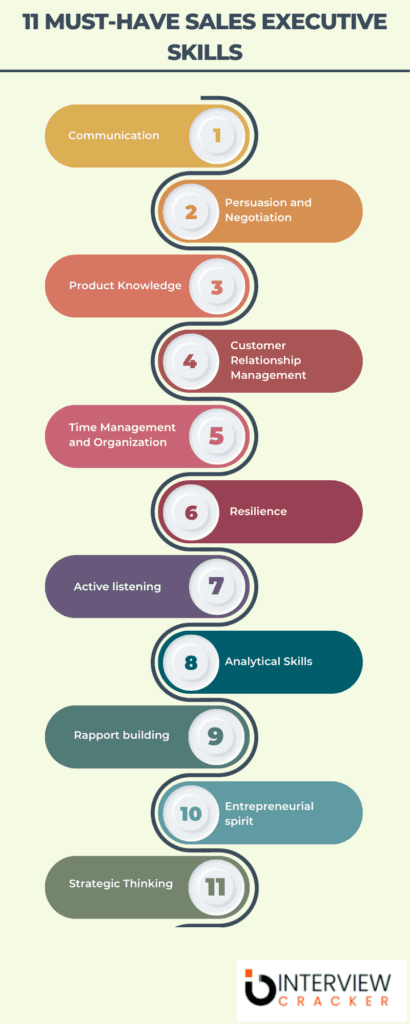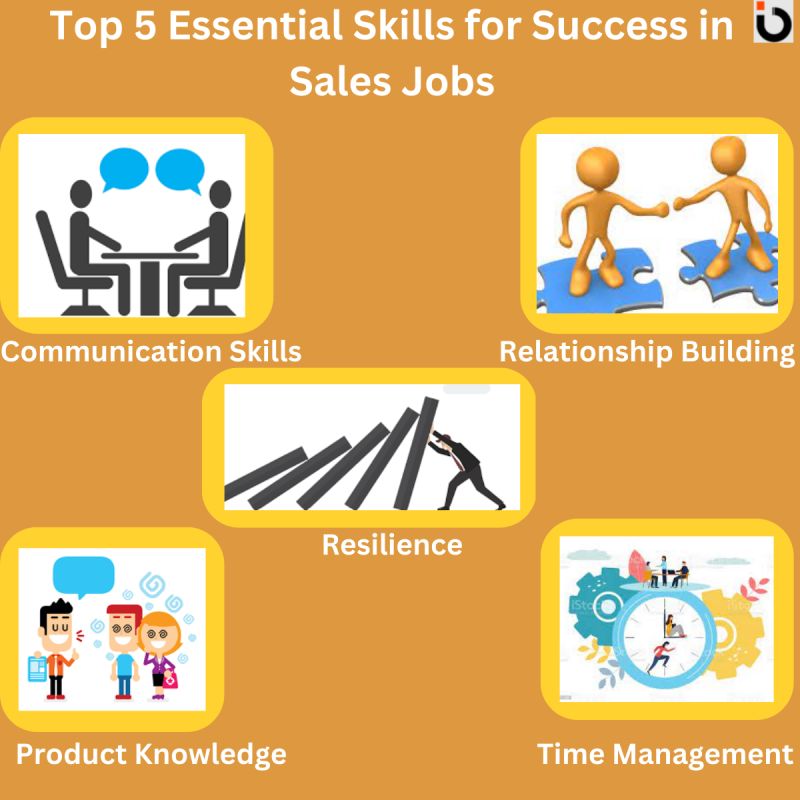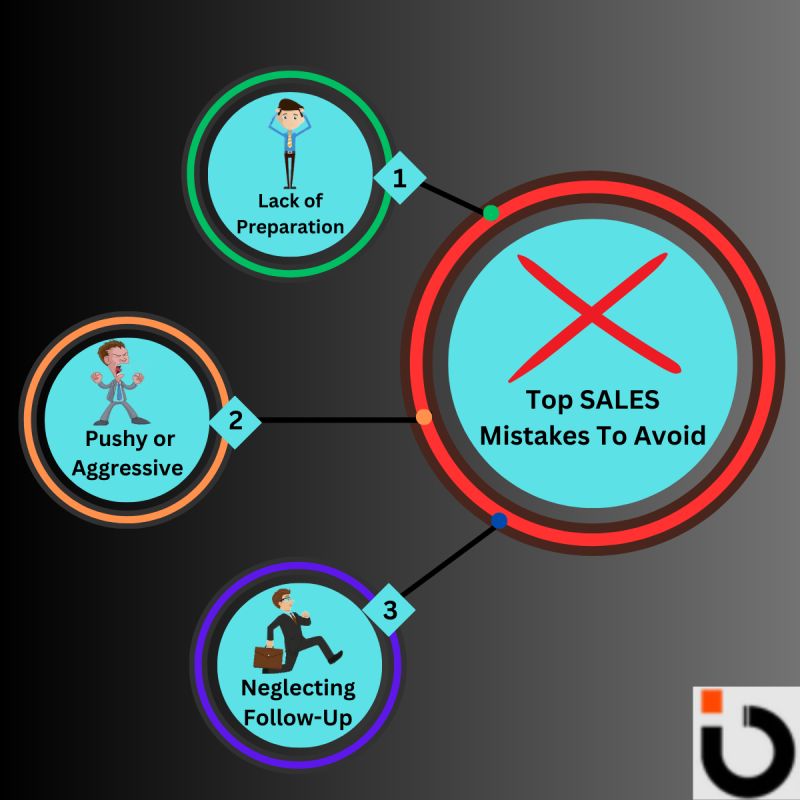Table of Contents
ToggleWhat is Sales Executive Meaning?
According to Collins dictionary “a professional responsible for increasing and developing a company’s sales” is a Sales Executive.
Meaning of a Sales Executive: A professional who sets annual sales targets for the company and works towards achieving them with the assistance of the Sales Manager & Sales Associates. The job is also based on setting up a strategy to find new prospects and sales leads and converting them into customers.
What is Sales Executive Jobs?
In today’s world, every organization needs a sales executive to enhance the growth of the company. They hire sales executives after cross-checking their sales capabilities so that they can add some value to the growth of the organization. Sales executives play a great role in every sector like banking and finance, insurance, telecom, FMCG, etc. Successful sales executives are always in demand. They switch organizations for a better package by showing their skills and past performance in the earlier organizations.

Why Knowing the Sales Executive Job Description is Important?
The sales process starts from the first customer contact to closing the deal and follow-ups. The sales executive plays an intermediate role between the company and the client. Sales executives promote products and services to the customers and negotiate deals with the aim of maximizing sales and profits.
Salaries of sales executives are enhanced by a good benefits package, including incentives, bonuses, lunch allowance, health insurance, group insurance, and other attractive facilities. The career growth of a sales executive is very steep, their earnings are some part fixed and some on the basis of their performance. They are always in demand and competitive organizations are always on the hunt for good sales executives.
What is Sales Executive Qualification?
The sales executive must have Bachelor’s or master’s degree. Specialization in marketing, promotions, advertising sales or business administration will be added advantage for the candidate. The candidate having prior industry experience in sales will be given priority.

11 Must-Have Sales Executive Skills | Definition and Examples
Sales executive skills are what sales professional use to communicate effectively with their business relationships.
Sales skills are the most important parameter for a sales executive. They use their skills to communicate effectively with clients and for selling products. The sales executive must have these skills for a better career in sales. The requisite skills for Sales Executive are:-
Qualities of Sales Executive:
1. Communication – Sales executives need strong verbal and written communication skills to effectively convey the value of a product or service to potential customers. The sales executive should always carry a positive attitude. The communication skills of the sales executive play a great role. S/He should communicate with the clients with conviction.
2. Persuasion and Negotiation: Sales executives must be persuasive and skilled negotiators. They need to understand customer objections, address them effectively, and present compelling arguments to close deals. Negotiation skills are important for reaching mutually beneficial agreements with customers and resolving conflicts.
3. Product Knowledge: Sales executives should know the features, benefits, and competitive advantages of the offerings. A comprehensive product knowledge enables sales executives to answer customer questions, highlight key selling points, and tailor their pitches to meet customer needs.
4. Customer Relationship Management: Building and maintaining strong relationships with customers is crucial in sales. Sales executives need to be skilled at building rapport, understanding customer preferences, and providing excellent customer service. They should be proactive in nurturing long-term relationships to foster repeat business and customer loyalty.
5. Time Management and Organization: Sales executives often have multiple tasks and priorities to manage. Effective time management and organization skills allow them to prioritize their activities, allocate resources efficiently, and meet deadlines. This includes managing sales pipelines, scheduling appointments, and following up with leads.

6. Resilience – Sales can be challenging, and sales executives need to be adaptable and resilient in the face of rejection or setbacks. They should be able to handle rejection positively, learn from failures, and persist in pursuing new opportunities.
7. Active listening – This is one of the crucial parameters. S/He should give attention properly and understand the need of the customer.
8. Analytical Skills: Sales executives need to analyze data and sales metrics to evaluate their performance, identify trends, and make informed decisions. Analytical skills help them understand market dynamics, assess customer needs, and identify areas for improvement in their sales strategies.
9. Rapport building – The skill deals with the personality of the sales executive. S/He has to sell the product using his/her personality.
10. Entrepreneurial spirit – In today’s world, every sector needs employees who can continuously develop their soft skills, are interested to learn new things, and are open to adopting new ideas. Learning new sales skills is basically the part of continual self-improvement of the executive.
11. Strategic Thinking: Sales executives should be able to think strategically and align their sales activities with the overall business objectives. This involves understanding market trends, identifying new opportunities, and developing sales strategies that contribute to the company’s growth.
Remember that these sales skills can be developed and improved over time through training, practice, and experience. Successful sales executives continuously refine their skills to adapt to changing market dynamics and customer needs.

Sales Executive Resume
The resume of a Sales executive is one of the crucial documents which clearly states the profile of the executive, his background, educational qualification, and previous work experience details. The effective resume of a sales executive should contain the below information.
- Mention the revenue you have generated per month/annual
- The seize of the deal
- Size and type of your customers( # of employees, B2B/B2C/D2C)
- A professional summary
- Work experience details
- Professional skills
- List of certifications
- Professional Affiliations
- Prominent contact information
Sales Executive/Officer Job Description For Resume
The resume of a Sales executive must contain the job description of his/her earlier organizations. An example of job responsibilities includes conducting market research to identify selling possibilities and evaluate client needs.
Include these points in your resume for sales role:-
Mention these points with respect to your last sales job role
- actively seeks out new sales opportunities through cold calling, networking, and social media.
- conducting market research
- evaluate client needs
- fix up meetings with potential clients and listen to their wishes and concerns.
- discover and pursue new sales prospects,
- negotiate deals
- maintain customer satisfaction.
- Do closers

Sales Executive Roles and Responsibilities
The roles and responsibilities of the sales executive are directly linked with the business target of the company. They have to ensure to achieve the target set by the company. Listed are a few main roles and responsibilities of the executive :
- Meeting with the clients
- Demonstrating and presenting the products of their organization.
- Establishing new ideas for the growth of the business.
- Maintaining accurate records of their clients.
- Attending trade exhibitions, conferences, and meetings.
- Reviewing sales performance.
- Negotiating contracts and packages.
- They should have excellent communication skills.
- The executive should feel comfortable reaching out to potential customers to demonstrate the services and products through email and phone.
What is Sales Executive Salary in India?
Generally, the salary range for a Sales Executive in India is as follows:
Entry-Level Sales Executive (0-2 years of experience):
The salary for an entry-level Sales Executive can range from approximately ₹2.5 lakh to ₹4 lakh per annum.
Mid-Level Sales Executive (2-5 years of experience):
The salary for a mid-level Sales Executive can range from approximately ₹4 lakh to ₹8 lakh per annum.
Experienced Sales Executive (5+ years of experience):
The salary for an experienced Sales Executive can range from ₹8 lakh to ₹15 lakh per annum or even higher in some cases, depending on the industry and company.
Difference Between Sales Officer & Sales Executive
Sales Officer and Sales Executive are both roles within a sales team, but they may differ in their responsibilities and seniority levels based on the organization’s structure. Here are some general differences between Sales officer and Sales executive:
| Criteria | Sales Officer | Sales Executive |
|---|---|---|
| Role | Focuses on field sales, managing customer relationships, and ensuring sales targets are met. | Involves both strategic planning and execution of sales activities to drive business growth. |
| Responsibilities | Meeting clients, pitching products/services, and ensuring revenue generation. | Developing sales strategies, analyzing market trends, and leading sales initiatives. |
| Hierarchy Level | Generally an entry-level or mid-level position. | Higher than a Sales Officer, often involved in decision-making and sales strategy. |
| Target Audience | Works directly with customers and retailers in assigned territories. | Works with clients, corporate customers, and sometimes manages teams. |
| Sales Approach | Primarily focuses on direct selling and fieldwork. | Uses both direct and strategic sales techniques, including client relationship management. |
| Skills Required | Good communication, negotiation, and customer handling skills. | Sales strategy, leadership, and market analysis expertise. |
| Growth Opportunities | Can be promoted to Sales Executive, Territory Manager, or Area Sales Manager. | Can advance to Sales Manager, Regional Head, or Business Development roles. |
| Compensation | Typically has a fixed salary with sales incentives. | Higher salary with performance-based bonuses and commissions. |
Sales Officer:
- Seniority: Sales Officer is generally a more senior position compared to a Sales Executive.
- Leadership: Sales Officers may be responsible for leading and managing a team of Sales Executives.
- Strategy: They often contribute to the development of sales strategies and help in setting sales targets and goals for the team.
- Decision-making: Sales Officers may have the authority to make important decisions related to sales operations and processes.
- Reporting: They usually report to higher-level management, such as Sales Managers or Sales Directors.
Sales Executive:
- Junior Level: Sales Executives are typically entry-level or mid-level positions within the sales team.
- Individual Contributors: They focus on generating leads, making sales calls, conducting product demonstrations, and closing deals.
- Targets: Sales Executives are assigned individual or team sales targets to achieve.
- Reporting: Sales Executives often report to Sales Officers or Sales Managers.
- Skill Development: Sales Executives may receive training and mentoring from more experienced team members to enhance their sales skills.
It is essential to note that job titles and responsibilities can vary widely from one organization to another, and some companies may use the terms Sales Officer and Sales Executive interchangeably or have different interpretations of these roles. The main distinction typically lies in the level of responsibility, leadership, and decision-making authority within the sales hierarchy.
Difference Between Sales Executive and Sales Representative
Sales Executive and Sales Representative are often used interchangeably in some organizations. However, there can be subtle differences in their responsibilities and focus.
Sales Executives are usually considered to be more experienced and may have a higher level of seniority compared to Sales Representatives. Sales Representatives are often considered entry-level or mid-level positions within the sales team.
Again, it’s important to remember that these terms may vary from one company to another. It’s essential to refer to the job descriptions and internal guidelines provided by the respective company to understand the exact roles and responsibilities associated with these titles.

Top 5 Sales Skills
Top 5 must to have sales skills are:
- Communication Skills-
Effective communication skills are crucial in sales, enabling professionals to convey value and build rapport with potential clients. - Relationships Building- Building and nurturing relationships is a cornerstone of successful sales, as trust and a genuine connection can lead to long-term partnerships.
- Resilience- Resilience is essential in sales, allowing salespeople to bounce back from rejection and setbacks, and maintaining a positive attitude throughout the process.
- Product knowledge-A deep understanding of the product or service being sold empowers salespeople to address customer needs and objections, instilling confidence in buyers.
- Time Management- Efficient time management ensures that sales professionals can prioritize tasks, focus on revenue-generating activities, and maximize their productivity in a competitive marketplace.

3 Top Common Sales Mistakes Are:
- Lack Of Preparation – One common sales mistake is the lack of preparation, where salespeople fail to research their prospects or adequately understand their product, diminishing their ability to address customer needs effectively.
- Pushy or Aggressive –Being pushy or aggressive in the sales process is another common mistake, as it can alienate potential clients and damage relationships rather than fostering trust and collaboration.
- Neglecting Follow Up- Neglecting follow-up is a significant error in sales, as it can result in missed opportunities and prevent the nurturing of leads into successful conversions, ultimately affecting the overall sales pipeline.
Sales Executive Interview Questions and Answers
A sales executive job interview is one of the most challenging interviews. The interviewers will have high expectations from you for their company. Sales executives can expect multiple interview questions of different categories. The typical questions expected in a sales interview are mentioned below.
Why Sales After BTech? | Why Do You Want to Join Sales after Being a Technical Student? | Why Do You Want to Do Sales after Engineering?
I want to transition into a sales role after B Tech because I believe it offers a unique opportunity to complement my analytical and problem-solving skills with strong interpersonal abilities. While my technical background has equipped me with a solid foundation, I’m excited to explore a career that involves building relationships, understanding customer needs, and providing tailored solutions.
Sales not only offers personal growth and adaptability but also aligns with my passion for the product or service, giving me the chance to contribute effectively to its success while pursuing a dynamic and fulfilling career path.
Are You Comfortable Making Customer Calls?
Yes, I am comfortable making customer calls. I recognize that effective communication is essential in a sales role, and I’m confident in my ability to engage with customers, actively listen to their needs, and provide them with relevant information and solutions. I understand that building rapport and trust over the phone is crucial, and I am committed to developing strong communication skills to ensure successful customer interactions. I’m enthusiastic about the opportunity to connect with customers, address their concerns, and ultimately contribute to a positive and productive sales experience.
Have You Consistently Achieved Your Sales Goals in the Previous Company?
Yes, during my tenure at my previous company, I consistently achieved or exceeded my sales goals. I believe that success in sales is the result of a combination of factors, including a strong work ethic, effective time management, understanding customer needs, and building lasting relationships. I made it a priority to thoroughly research and understand our products or services, allowing me to provide tailored solutions to our clients.
Why are You Interested in Sales? | Why do You Want to Work in Sales? | Why Sales Jobs?
I am interested in sales because it allows me to combine my strong communication and interpersonal skills with my passion for problem-solving. I find the dynamic and ever-changing nature of sales intriguing, as it challenges me to adapt, learn, and grow constantly. Additionally, the potential for financial rewards based on performance is a strong motivator.
Ultimately, I see sales as a profession that offers both personal and professional development opportunities, and I am excited about the chance to contribute to a company’s growth while advancing my career.
Other Sales Interview Questions
- What motivates you to work in the organization?
- How did you land your most successful sale?
- How would your colleagues describe you?
- What are your long-term career goals?
- What do you know about this company?
- Why are you interested in this sales position?
- What makes you a good salesperson?
- What direction do you see this company taking in the next five years?
But before some one ask this question, lets get a clarity why am I interested in sales jobs. What is sales jobs? What is sales executive’ job description, what’s the roles and responsibilities? What’s the career path for a sales professionals and what’s the salary offered? This blog will help you to answer all these questions.
FAQs for Sales Executive Job
1. What are the primary responsibilities of a Sales Executive?
Sales Executives are responsible for generating leads, prospecting new clients, negotiating sales contracts, and maintaining customer relationships. They also analyze market trends, develop sales strategies, and meet sales targets.
2. What qualifications are typically required for a Sales Executive position?
While educational requirements may vary, most employers prefer candidates with a bachelor’s degree in business, marketing, or a related field. Previous experience in sales or customer service is often preferred, along with strong communication and negotiation skills.
3. What are the key skills needed for success as a Sales Executive?
Key skills for Sales Executives include excellent communication and interpersonal skills, persuasion and negotiation abilities, strong customer service orientation, resilience, and the ability to work under pressure to meet sales targets.
4. How can I stand out as a candidate for a Sales Executive role?
To stand out as a candidate, highlight your sales achievements, such as exceeding targets, securing large accounts, or developing successful sales strategies. Showcase your ability to build rapport with clients and your understanding of the products or services you’ll be selling.
5. What is the typical compensation package for Sales Executives?
Compensation for Sales Executives often includes a base salary along with incentives or commissions based on sales performance. Some companies may also offer additional benefits such as bonuses, travel allowances, and health insurance.
6. What are some common challenges faced by Sales Executives?
Common challenges include dealing with rejection, managing time effectively to balance lead generation and client meetings, and staying motivated during periods of slow sales. Additionally, staying updated with market trends and adapting to changes in the industry can be challenging.
7. How can I prepare for a Sales Executive interview?
Prepare for a Sales Executive interview by researching the company, understanding its products or services, and familiarizing yourself with the industry and market trends. Be ready to discuss your previous sales experiences, successes, and challenges, and demonstrate your ability to contribute to the company’s sales goals.
8. What growth opportunities are available for Sales Executives?
Sales Executives can advance to senior sales positions, such as Sales Manager or Sales Director, with experience and a proven track record of success. Some may also transition into specialized sales roles or move into related areas such as marketing or business development.
9. How important is networking for Sales Executives?
Networking is essential for Sales Executives to build relationships with potential clients, industry peers, and influencers. It can help uncover new business opportunities, gain referrals, and stay informed about market trends and competitor activities.
10. What qualities make a successful Sales Executive?
Successful Sales Executives possess qualities such as resilience, persistence, adaptability, and a customer-centric approach. They are goal-oriented, proactive in seeking out opportunities, and skilled at building and maintaining relationships with clients.
Conclusion
Sales executive jobs are not very difficult. Certainly, it is one of the most interesting jobs in today’s market. Therefore most Sales executives keep in-depth knowledge of the products of the organization so that they can easily convince the customers. They can explain the advantages of the product and demonstrate how the product is superior to the peers available in the market.
The sales executives are the face of the company. They carry the brand value of the organization as their dealings with the clients have a direct impact on the future of the organization. Their communication skills play a great role in the growth of the sales of the product.
Further, the organization takes care of the performers and promotes them for their contribution to business growth.

